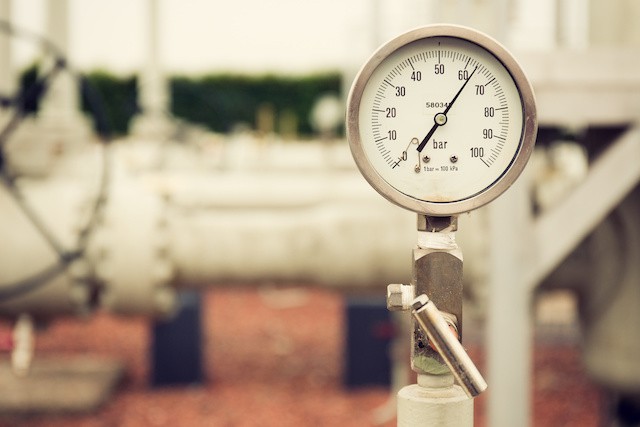High Pressure Valves: 5 Things You Need To Know
06-05-23

Are you working in an industry that requires high pressure valves? Do you need to make an informed decision when selecting the correct high pressure valve for your application?
High pressure valves are crucial in various industries. For instance, oil and gas, chemical processing, and water treatment. With so many factors to consider, it can be challenging to make an informed decision.
That’s why we’ve put together this article outlining the five essential things you need to know about high pressure valves. By understanding these critical factors, you’ll be better equipped to select the correct valve.
Keep reading to learn about the types of high pressure valves, materials used, and budget considerations. Discover maintenance requirements, and safety considerations when working with high pressure valves.
What are High Pressure Valves?
High pressure valves are designed to withstand high pressure and temperature. Thus, making them ideal for applications that handle corrosive fluids and gases.
They have various components, including the body, stem, disc, seat, and actuator. The body of a high pressure valve is typically made of materials such as stainless steel or titanium. This can withstand high pressure and temperature.
The disc is the component that regulates the flow of fluid or gas, while the seat ensures a tight seal when the valve is closed. The stem connects the disc to the actuator, which opens and closes the valve.
Types of High Pressure Valves
There are several high pressure valves, each with unique features and uses. The most common styles include ball, gate, globe, and check valves.
Ball valves are commonly used in high-pressure applications because of their tight seal and ease of operation. They have a rotating ball that controls the flow of fluid or gas through the valve.
Check valves that allow fluid or gas to flow in one direction only and prevent backflow. Gate valves have a wedge-shaped disc lowered into the flow path to shut off the flow. Globe valves have a linear motion stem that moves the disc up and down to regulate the flow.
Factors to Consider When Choosing High Pressure Valves
Several factors need to be considered when choosing high pressure valves. These include pressure rating and temperature, and material compatibility with the fluid transported. There are operational requirements and environment, budget, and maintenance considerations.
The pressure rating of the valve should match the maximum pressure of the fluid or gas being transported. The temperature range should be within the limits of the valve’s material. The valve material should be compatible with the liquid or gas being transported to prevent corrosion or other damage to the valve.
Operational requirements such as flow rate, pressure drop, and environment should be considered. Finally, budget and maintenance considerations should be regarded when selecting high pressure valves.
High Pressure Valve Uses
High pressure valves have various uses in various industries, including oil and gas. There’s also chemical processing, water treatment, pharmaceuticals, aerospace, and defense.
In the oil and gas industry, high-pressure valves control the flow of oil and gas from the wellhead to processing facilities. They are also used in refineries and petrochemical plants. This is done to control the flow of various chemicals and gases.
In the chemical processing industry, high-pressure valves regulate flow of chemicals in reactors. In water treatment plants, high-pressure valves control water flow through the treatment process.
In the pharmaceutical industry, high-pressure valves regulate the flow of fluids in manufacturing.
In the aerospace and defense industry, high-pressure valves are used in aircraft and rocket engines. This is done to control fuel flow and other fluids.
Maintenance and Repair of High Pressure Valves
Regular maintenance is essential to ensure optimal valve performance and prevent downtime. This includes cleaning and lubricating the valve, and inspecting the components for damage. It also means replacing worn or damaged parts.
Common issues with high-pressure valves include leakage, valve sticking, and valve failure. Not promptly addressing these issues can lead to more significant problems and failure.
It’s essential to have a regular maintenance schedule. You must address any problems as soon as they arise to prevent further damage. Serious damage can lead to huge financial losses in this regard.
In the event of valve failure or damage, repairs should be done promptly to avoid prolonged downtime. High-pressure valve providers typically offer repair services for their valves. It’s essential to work with a reputable provider who can provide prompt and reliable repairs.
Safety Considerations When Working with High Pressure Valves
Working with high pressure valves can be hazardous. Taking precautions to prevent accidents and injuries is essential. Hazards associated with high-pressure valves include explosion, fire, and chemical exposure.
Precautions include wearing appropriate personal protective equipment, following safety guidelines and procedures. You must be assured that the valve is installed correctly and maintained.
It’s your responsibility to assure personnel working with high pressure valves receive proper training. You must understand the hazards associated with these valves. Without this, you’re open to all sort of nasty problems.
Valves for All Use Cases
High pressure valves are vital in various industries. For example, oil and gas, chemical processing, and water treatment.
Regular maintenance repairs are essential to ensure optimal performance and prevent downtime. Finally, safety is critical when working with high pressure valves to avoid accidents.
By understanding these essentials about high pressure valves, you can make informed decisions. This will make your equipment and processes safe for efficient operation.
Get in touch if you’re interested buying high pressure valves for your use case from a reputable company.